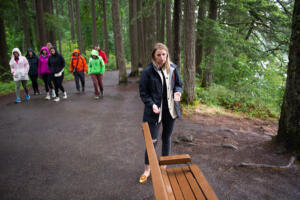Scott Higgins
Community involvement: City Council member from January 2002 to June 2011, when he was appointed mayor; helped organize Camas Centennial Celebration in 2008; involved in Camas Sister City program and helped establish English language summer camp in Poland; co-founded Camas Youth Advisory Council; member of the Camas Lions.




